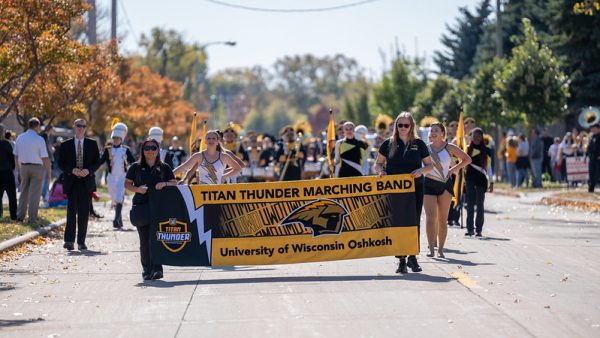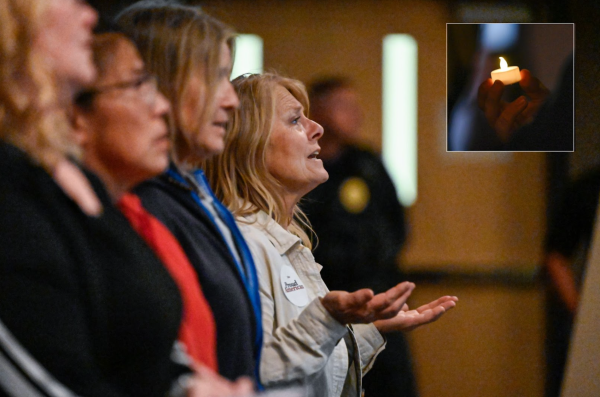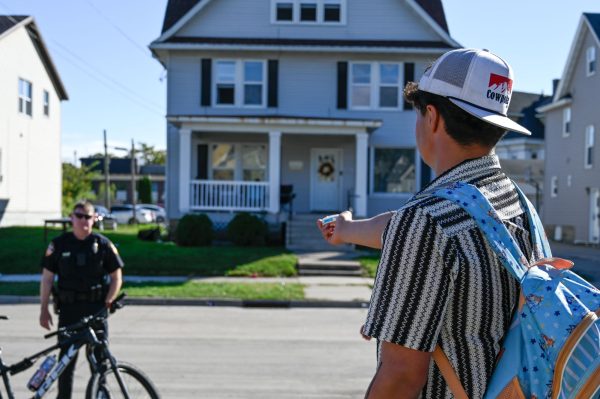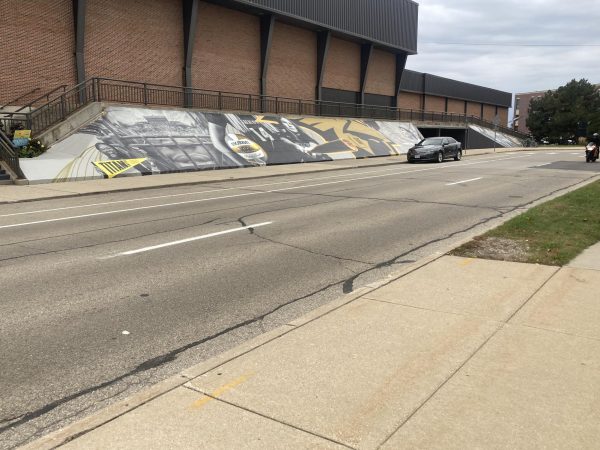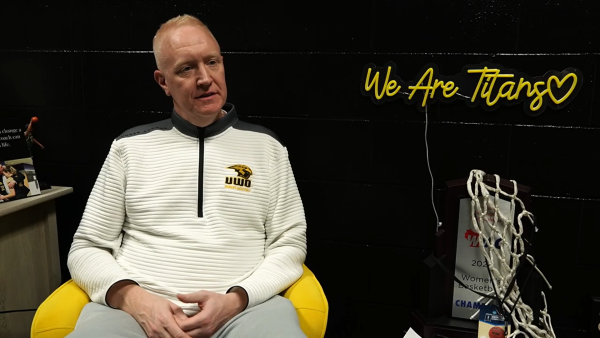Students continue to support Sioux Nation
UW Oshkosh students joined in conversation about social justice and sustainability issues currently happening in North Dakota at Standing Rock as part of UWO Social Justice and Earth Week.
A screening of the film, Awake: “A Dream from Standing Rock,” followed by the panel discussion Awaken Your Mind: Water, Truth & Justice took place Tuesday in Sage Hall.
Protests throughout the country began in 2016 when the Standing Rock Sioux Tribe and their allies sought to protect their water and sacred burial sites from the Dakota Access Pipeline. During that year, the Dakota Access pipeline proposed to transport light, sweet crude oil from the North Dakota Bakken region through South Dakota and Iowa into Illinois. Standing Rock continues to fight for their rights.
UWO anthropologist and co-sponsor for the event Heidi Nicholls explained what it means for UWO to ‘Stand With Standing Rock’.
“Standing Rock is one of the reservations for Sioux, which is a larger group within the Dakota Nakota Lakota peoples,” Nicholls said. “It’s the reservation that’s the closest to the pipeline, which backs up right on to it and is on the traditional Standing Rock lands. When we’re talking about standing with Standing Rock, we’re talking about standing with the first nation of peoples.”
Nicholls said the issue at Standing Rock has the potential to directly affect millions of people.
“The first social justice issue here is water,” Nicholls said. “We all need water to survive. Any potential burst or break means polluting the entire river. Once that river is polluted, not only are you going to be polluting the water that solely serves Standing Rock, it also flows downward the Missouri River and ends up affecting 17 million people.”
Nicholls said Standing Rock is not the only place facing similar problems.
“We are already going through all of this with Flint, Michigan,” Nicholls said. “What does that mean for our health? What does that mean for cultural pathways at Standing Rock if you’re talking about traditional fishing and waterways or relationships and origin myths?”
American Indian Student Services Coordinator and co-sponsor for the event Dennis Zack said this will be an ongoing issue.
“It’s one of those things where they want more resources again, and it’s never enough,” Zack said. “They want more resources, they are on their land and it’s like ‘Okay, we can’t just leave you alone now after this big money, big oil, this is what we want, and this is where we are going to lay our pipeline.’”
Nicholls said cultural issues are also a large concern for Standing Rock.
“Some of the other social justices issues that end up happening, in some ways, is kind of a re-reflection of many of the treaties that have already been broken in the past and now is happening again,” Nicholls said. “People coming into the reservation land and telling native peoples where they can and can not go; yes, we’re not supposed to be drilling that close to border because some of the pipe is about 15,000 feet from the actual reservation land boundary and some of the treaty says you can’t do that.”
UWO student, Sara Anderson said she came to join in on the discussion hoping to spread the word to more students.
“The importance of this event is to have people understand and get a grasp on the cultural significance that is behind Standing Rock and why people are so passionate about keeping it for the Native people rather than taking it for our own use,” Anderson said. “As far as sustainability goes we need to protect a lot of these resources we have whether it be for cultural reasons or for ecological reasons.”
Associate Professor in Professional Counseling at UWO, Amney Harper said she went to Standing Rock to help in any way she could.
“I had been following this issue for a long time and I had a lot of people that I knew that had made trips out so I felt it was important for me to go,” Harper said. “I wasn’t on the front lines, but just being there at camp and bringing donations and to be able to tribute felt meaningful to be able to be a part of something bigger than myself.”
According to Harper, UWO has made several efforts to ‘Stand With Standing Rock’ by making donations and spreading awareness. On Friday, Dec. 9 2016, UWO students and staff marched to support the Standing Rock Sioux Tribe.
Harper also said she went to Standing Rock because clean water is a problem that everyone should be concerned about.
“We need water to live, water is life,” Harper said. “I hope everyone realizes that this is important, there are many places where people are struggling to have clean water.”
Zack said you can support social justice and sustainability issues like Standing Rock without being on the front lines.
“I think this event serves as a way for activism for a way for students to get involved without necessarily having to go to Standing Rock,” Zack said. “There are certain things they can do on this campus, like going to an event like this and learning about some of the things going on in the world.”



